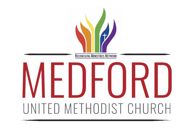
1 Samuel 13:9-11; Proverbs 3:6 (CEB)
9 So Saul ordered, “Bring me the entirely burned offering and the well-being sacrifices.” Then he offered the entirely burned offering.
10 The very moment Saul finished offering up the entirely burned offering, Samuel arrived. Saul went out to meet him and welcome him. 11 But Samuel said, “What have you done?”
“I saw that my troops were deserting,” Saul replied. “You hadn’t arrived by the appointed time, and the Philistines were gathering at Michmash.
6 Know him in all your paths,
and he will keep your ways straight.
Reflection
According to A Dictionary for United Methodists, “Through reason the individual Christian brings to bear on the Christian faith discerning and cogent thought” (Waltz, 1991). When we study the scriptures, we must consider how God’s Word brings discerning reason and obedient thought through faithful actions.
As we talked about the value of tradition in the WQ on Tuesday, using earthly reasoning can be a dangerous diversion from the wisdom of God if not used properly. One example is how King Saul panicked before an impending battle because the prophet Samuel was seven days late arriving to his camp. By tradition, Samuel was the only one qualified to make a sacrifice to God. Saul mistakenly thought it was “reasonable” for him to break tradition and take matters into his own hands.
One of our Sunday School tasks was to decide how the WQ could be used to decide if we should stand by while a fellow classmate decides to fulfill a dangerous dare. We looked at part of a poem by Don Merrill to help make our reasoned decision.
He took the chance, I closed an eye,
And with that act, I let him die.
I could have saved a life that day,
But I chose to look the other way.
If you see a risk that others take,
That puts their health or life at stake,
The question asked or thing you say
Could help them live another day.
Reasoning in making our own plans can be equally compelling and vital to our lives – for good or for ill. So our task is to read scripture and pull from traditions to discern reason that adheres to our understanding of God. This can lead us to act when others need us. As Joyce Meyer notes, “It is so easy to make our own plan instead of waiting on God to show us” and instead we should discerningly reason “If you don’t approve of any part of [my plan], I’m willing to change and do what You want” (Battlefield of the Mind Bible, 2017).
The United Methodist Hymnal includes the hymn “Lead Me, Lord”. It speaks cogently and concisely “Lead me, Lord, lead me in thy righteousness, make thy way plain before my face. For it is thou, Lord, thou, Lord only, that makest me dwell in safety.” (1989)
By Brian Harriet
For Pondering & Prayer
Think about how current popular challenges and temptations may be pushing God’s wisdom aside while ignoring that our God benefits both our earthly days and our eternal soul. How might you more closely follow Proverbs 3:6 in acknowledging the Lord in “all your paths” so that God “will keep your ways straight”?
Prayer: Lord, help us to stay in Your Word and use it to become more discerning and obedient in thought. Bring us through our faithful actions to become more like your precious Son, Jesus the Christ. Amen.
